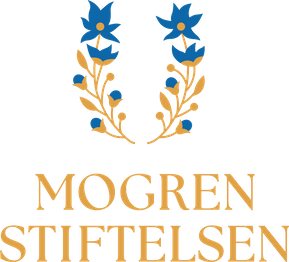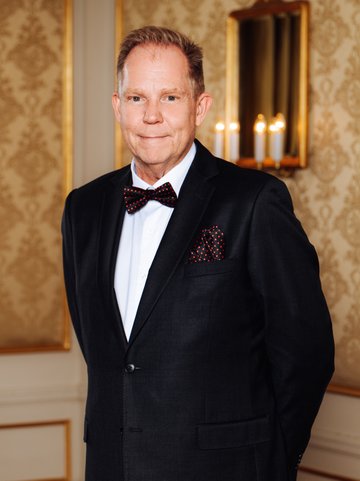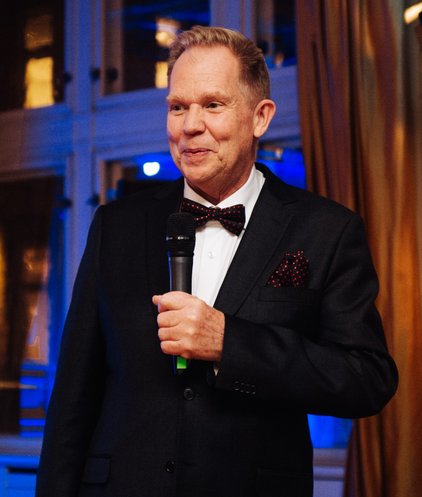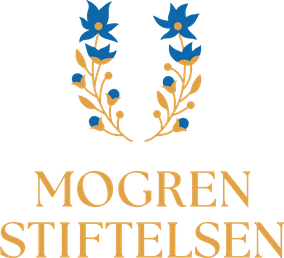2022 Medicine Prize
Ola Björgell is honoured for his fight for better patient care
The 2022 Mogren Medicine Prize goes to Dr Ola Björgell, Associate Professor and Senior Physician in Diagnostic Radiology at Skåne University Hospital. Ola Björgell is awarded the prize of SEK 250,000 for his work to strengthen the patient focus and to train healthcare professionals in human rights.
“As a physician, you are expected to be an expert on two things. You’re required to be phenomenal, even world-leading, in your medical specialty, and also the best at personal meetings."
Ola Björgell
Jury motivation
“Ola Björgell is genuinely interested in the patient's situation, without preconceived notions. Through dialogue, he creates a safe and relaxed examination situation, while involving junior colleagues and staff in the learning process.”
Everything can go wrong when time is lacking
Without sufficient time allowed in the doctor’s office, the patient may not disclose all the important or difficult information. This can lead to unnecessary visits, costly investigations, and, in the worst case, misdiagnosis. Fundamentally, this presents a big work environment challenge, according to the 2022 Mogren Medicine Prize awardee, Dr Ola Björgell.
“As a physician, you are expected to be an expert on two things. You’re required to be phenomenal, even world-leading, in your medical specialty, and also the best at personal meetings,” says Ola Björgell.
Dr Ola Björgell is a Reader and Chief Physician in diagnostic radiology at Skåne University Hospital. He is involved in upskilling healthcare professionals, both locally and nationally, in bedside manner with a focus on discrimination law. He has also built an extensive operation to strengthen the healthcare sector’s human rights work.
Dr Björgell has worked in healthcare his entire career. He started as a nurse’s assistant and has seen the number of patients increase and the staff decrease over the years, leading to a much smaller time window for the meeting between physician and patient.
“Feeling absolutely welcomed as a patient is crucial because of the power relations in the meeting with healthcare. You are exposed, often alone, and in addition to this, you have some kind of condition and, in some cases, are seriously ill. That meeting needs to be allowed to take time, but that is not always the case today.”
A lack of time can lead to the wrong diagnosis
Research has documented how patients feel when they meet healthcare professionals. According to Ola, it’s safe to say that there is room for development.
“Being a patient today requires quite a lot of strength, or being surrounded by friends and family who ensure your human rights are respected. For physicians to be given the space to pause and listen to the patients they are meeting – and make that a prioritisation – is an absolute prerequisite for successful healthcare.”
When the patient meeting is not granted enough space, it is a problem not only for the patient, but for the entire system.
“The patient may not tell us the most important or difficult things, or they may simply lack trust altogether. That can lead to unnecessary visits, costly investigations, and, in the worst case, the wrong diagnosis. If we don’t award ourselves that little bit of extra time, we risk getting everything wrong.”
Work environment intimately connected to bedside manner
Ola considers the fundamental problem to have at least partly to do with healthcare professionals needing to practice kindness. Questionnaires in all Swedish healthcare regions show that a too big share of healthcare professionals experience workplace discrimination based on age, gender and ethnicity.
“How are you and I supposed to care for patients when we cannot even care for each other as colleagues? The healthcare sector is active in societal development, democracy, and health promotion. We ought to be permitted to practice this to become experts.”
During #metoo, 10,000 Swedish female physicians signed a call to action and testified about sexual harassment and discrimination.
“We have statistical evidence that we need to start working with establishing respect and kindness between staff to be able to go into the patient meeting and express the same manners. The equation does not add up if we do not train both qualities, since they are so intimately connected.”
Invest now, get rewarded later
That means allowing resources for education and time for reflection within the profession. This is a cost that leading healthcare providers have to be brave enough to take in order to break the vicious cycle of challenges relating to time, work environment, and bedside manner.
“These are not scientifically difficult equations. Those of us who work in healthcare need to be given time to work with this! We have to create a climate where it is acceptable to talk about what is missing, find better models, and find those who end up harmed by the current models. That is simply impossible if you lack the time and the working environment.”
About Ola Björgell
Dr Ola Björgell, born in 1962, is a Reader and Chief Physician in Diagnostic Radiology at Skåne University Hospital in Malmö, specialising in ultrasound examinations. He is also scientific secretary of the Swedish Medical Association and chairman of its programme committee.
Ola Björgell has served for many years as a director of studies and as regional consultant for interns and residents in Region Skåne. He now focuses on human rights in his capacity as head of the “equal rights and equal opportunities” programme for all medical staff working under Region Skåne. He is also the initiator of many national courses and congresses.



